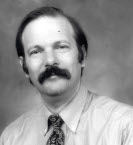Sunday Tutorial, 15. November, 13:30 - 14:30
Formal Techniques for SoC Verification
Moshe Y. Vardi, Rice University
Abstract
SystemC has emerged lately as a de facto, open, industry standard modeling language, enabling a wide range of modeling levels, from RTL to system level. Its increasing acceptance is driven by the increasing complexity of designs, pushing designers to higher and higher levels of abstractions. It is particularly suitable for modeling Systems-on-Chip, enabling hardware-software codesign.
While a major goal of SystemC is to enable verification at higher level of abstraction, enabling early exploration of system-level designs, the focus so far has been on traditional dynamic verification techniques. It is fair to see that the development of formal-verification techniques for SystemC models is at its infancy. In spite of intensive recent activity in the development of formal-verification techniques for software, extending such techniques to SystemC is a formidable challenge. The difficulty stems from both the object-oriented nature of SystemC, which is fundamental to its modeling philosophy, and its sophisticated event-driven simulation semantics.
In this tutorial we portray what is needed to develop formal techniques for SystemC verification, augmenting dynamic validation techniques. By formal techniques we refer here to a range of techniques, including assertion-based dynamic validation, symbolic simulation, formal test generation, explicit-state model checking, and symbolic model checking. We describe recent progress in this area and outline research challenges.
Bio
Moshe Y. Vardi is the George Professor in Computational Engineering and Director of the Ken Kennedy Institute for Information Technology at Rice University. He chaired the Computer Science Department at Rice University from January 1994 till June 2002. Prior to joining Rice in 1993, he was at the IBM Almaden Research Center, where he managed the Mathematics and Related Computer Science Department. His research interests include database systems, computational-complexity theory, multi-agent systems, and design specification and verification. Vardi received his Ph.D. from the Hebrew University of Jerusalem in 1981. He is the author and co-author of over 350 articles, as well as two books, "Reasoning about Knowledge" and "Finite Model Theory and Its Applications", and the editor of several collections. He is currently the Editor-in-Chief of the Communications of the ACM.
Vardi is the recipient of three IBM Outstanding Innovation Awards, a co-winner of the 2000 Goedel Prize, a co-winner of the 2005 ACM Kanellakis Award for Theory and Practice, a co-winner of the 2006 LICS Test-of-Time Award, a co-winner of the 2008 ACM PODS Mendelzon Test-of-Time Award, a winner of the 2008 ACM SIGMOD Codd Innovations Award, a recipient of the 2008 Blaise pascal Medal for Computer Science by the European Academy of Sciences, as well as a 2008 ACM Presidential Award. He holds honorary doctorates from the University of Saarland, Germany, and the University of Orleans, France. Vardi is an editor of several international journals, and Editor-in-Chief of the Communication of ACM. He is Guggenheim Fellow, as well as a Fellow of the Association of Computing Machinery, the American Association for the Advancement of Science, the Association for the Advancement of Artificial Intelligence, and the Institute for Electrical and Electronic Engineers. He was designated Highly Cited Researcher by the Institute for Scientific Information, and was elected as a member of the US National Academy of Engineering, the European Academy of Sciences, and the Academia Europea.
